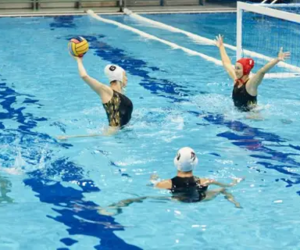In today’s information-driven world, students are constantly exposed to an overwhelming amount of content-ranging from scholarly journals to blogs, social media, and online forums. While this access to knowledge is empowering, it also poses a significant challenge: not everything found online is accurate or credible. This is where fact-checking becomes crucial, particularly in academic writing. Whether students are seeking assignment help birmingham resources, consulting research databases, or collaborating with peers, ensuring the accuracy of information is fundamental for producing quality work.
Academic institutions uphold integrity as a cornerstone of scholarship, and failing to verify facts can not only weaken an argument but also risk plagiarism, misinformation, or even academic misconduct. This article explores why fact-checking is essential in academic writing, highlighting best practices, common pitfalls, and ways students can strengthen their work with credible research.
The Role of Fact-Checking in Academic Integrity
Academic writing is not just about presenting ideas-it’s about supporting them with credible evidence. Fact-checking acts as a safeguard against spreading false or misleading claims. For example, when writing an essay about climate change, citing an outdated or biased source could discredit the argument, even if the structure and grammar are flawless.
Why It Matters:
- Protects credibility – Students earn the trust of professors and peers when their work is grounded in reliable information.
- Prevents misinformation – Universities emphasise accuracy to ensure scholarly work contributes positively to the academic community.
- Strengthens arguments – Verified facts add weight and authority to claims, making essays, reports, and dissertations more persuasive.
The emphasis on fact-checking goes beyond good practice-it’s tied directly to academic integrity policies. Submitting a paper riddled with errors or unverifiable data can lead to lower grades, failed assignments, or disciplinary actions. This is why developing strong fact-checking habits early in academic life is essential.
Common Challenges Students Face in Fact-Checking
While students recognise the importance of accuracy, they often face obstacles that make fact-checking difficult. Understanding these challenges is the first step toward overcoming them.
- Information Overload
With millions of sources available online, distinguishing between peer-reviewed research and unreliable websites can be daunting. Many students fall into the trap of citing the first few search results, even if they lack credibility. - Time Constraints
Academic deadlines are often tight, and students under pressure may skip thorough verification in favour of faster completion. This shortcut can backfire if weak sources are detected by professors. - Paywalls and Access Barriers
High-quality journals and research databases often require subscriptions, leaving students to rely on free but less reliable content. - Misleading Statistics
Data can be manipulated or taken out of context. Without careful evaluation, students risk presenting distorted facts that misrepresent reality. - Overreliance on Secondary Sources
Instead of going directly to primary research, students sometimes rely on blog summaries or opinion pieces that lack academic rigour.
Overcoming these challenges requires a combination of awareness, skill development, and in some cases, support from professional assignment writing help platforms.
Read Also: 2026 WCQ: Why FIFA Yet To Deduct Three Points From South Africa –Hack
Best Practices for Effective Fact-Checking
Fact-checking is more than typing a phrase into Google; it requires critical thinking and systematic evaluation of sources. Below are key strategies students can use to strengthen their fact-checking process:
1. Use Peer-Reviewed Journals and Academic Databases
Reliable sources include Google Scholar, JSTOR, and PubMed. These platforms house peer-reviewed content that undergoes rigorous evaluation by experts in the field.
2. Check the Author’s Credentials
Look for publications by recognised scholars or institutions. Avoid anonymous blogs or sources that lack professional expertise.
3. Cross-Verify Information
Never rely on a single source. If a fact is accurate, it should be supported by multiple credible publications.
4. Pay Attention to Publication Dates
In fields like technology, medicine, and environmental science, outdated data can significantly undermine the accuracy of an assignment.
5. Evaluate the Purpose of the Source
Distinguish between unbiased research and articles with hidden agendas, such as political or commercial motivations.
6. Be Critical of Statistics and Data
Ask: Who conducted the study? How large was the sample size? Was the methodology transparent? Statistics are powerful but can easily be misused.
These strategies not only improve accuracy but also give students confidence in presenting their arguments.
How Poor Fact-Checking Impacts Academic Performance
Failing to fact-check doesn’t just affect credibility-it can have lasting academic and professional consequences.
- Lower Grades: Professors often check references and may deduct marks if sources are weak, outdated, or irrelevant.
- Plagiarism Risks: Using unverified content increases the chance of unintentionally copying false or unattributed material.
- Misleading Research: When inaccurate claims circulate in academia, they can negatively impact further research by others.
- Reputation Damage: A pattern of careless referencing can harm a student’s academic reputation and, in extreme cases, lead to disciplinary measures.
For example, imagine a business student analysing consumer behaviour based on outdated 2015 reports without acknowledging recent trends. The analysis would appear weak and potentially misinform the professor, resulting in lower evaluation. This highlights why students must view fact-checking as a non-negotiable step in the writing process.
The Role of Assignment Help Services in Supporting Fact-Checking
Fact-checking may sound straightforward, but in reality, it demands time, access to credible sources, and attention to detail. This is where academic assignment help platforms can step in to assist. Professional assignment help services ensure that the information used in student papers is thoroughly verified, credible, and properly referenced.
For instance, students seeking online assignment help often struggle with identifying legitimate research papers or formatting references according to specific styles like APA, MLA, or Harvard. Expert editors and assignment helper professionals can provide guidance by:
- Recommending peer-reviewed sources that strengthen arguments.
- Ensuring every claim in an essay is backed by verifiable data.
- Offering assignment writing help that focuses on both structure and factual accuracy.
- Providing access to premium academic resources otherwise hidden behind paywalls.
An Assignment help website acts as both a support system and a learning resource, showing students not only what to include but also why credibility matters.
How Assignment In Need Enhances Fact-Checked Writing
One service that stands out in ensuring accuracy and reliability is Assignment In Need. Unlike generic writing services that may focus solely on word count or formatting, Assignment In Need places emphasis on academic integrity and fact-checking.
Here’s how the platform assists students:
- Thorough Research Support: The service helps identify peer-reviewed, trustworthy sources tailored to the subject area.
- Quality Control Checks: Before submission, assignments undergo rigorous quality checks to ensure accuracy and originality.
- Reference Management: Proper citations and referencing are provided to avoid plagiarism and uphold credibility.
- Tailored Guidance: Beyond delivering content, the service explains how facts are chosen, encouraging students to develop their own research skills.
By integrating expert knowledge with attention to detail, Assignment In Need bridges the gap between academic expectations and student challenges. This makes the platform not just a writing service, but also a learning companion for long-term academic growth.
Conclusion
In the fast-paced academic environment, fact-checking often becomes an overlooked step in the rush to meet deadlines. Yet, as we’ve explored, it is the foundation of academic integrity, credibility, and persuasive writing. Without it, even the most well-written paper risks falling apart under scrutiny.
Students can strengthen their academic performance by embracing effective verification practices: consulting credible databases, cross-referencing multiple sources, and critically evaluating statistics. At the same time, professional support can play a pivotal role. Platforms like Assignment In Need (assignnmentinneed.com) ensure that students not only meet deadlines but also submit thoroughly fact-checked, credible, and polished work.
In the end, accuracy is not just a technical requirement-it is a skill that builds trust, fosters academic growth, and prepares students for professional success. For learners who feel overwhelmed, exploring assignment help services can provide the balance between independent research and guided support.
Ready to enhance the quality of your academic work? Learn more about how Assignment In Need can provide reliable, fact-checked support tailored to your studies.








